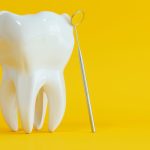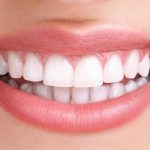Why Biting Down Hurts Your Bottom Teeth: Understanding the Causes and Solutions
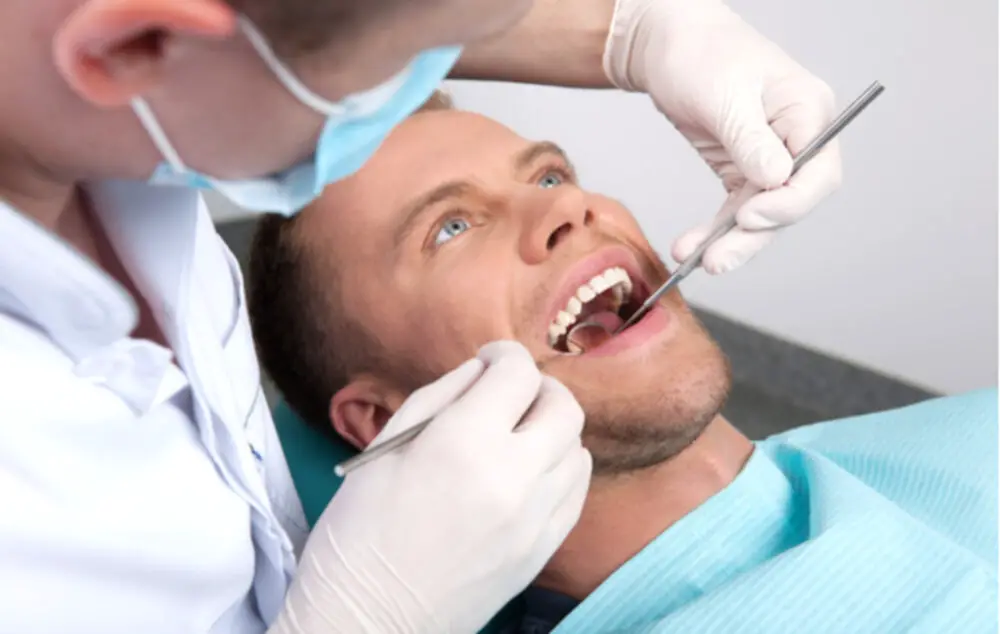
Biting down is a natural instinct that we all do every day without even thinking about it. However, have you ever experienced pain in your bottom teeth when biting down? This can be a common issue for many people, and it can be caused by a variety of reasons. Understanding the causes and solutions for this pain can help you take better care of your teeth and prevent further discomfort. One of the primary causes of pain when biting down on your bottom teeth is due to clenching or grinding your teeth. This is a common habit that many people do without realizing it, especially during times of stress or while sleeping. Over time, this can cause wear and tear on your teeth, leading to pain and sensitivity. Additionally, if you have a misaligned bite or crooked teeth, this can also contribute to pain when biting down. By understanding the causes of this pain, you can take steps to address the issue and find relief.
Biting down can be an uncomfortable experience for many individuals, particularly when it causes pain in the bottom teeth. This problem can be caused by several factors, such as teeth grinding or clenching, dental decay, gum disease, or even a misaligned bite. Teeth grinding or clenching, for instance, can put excessive pressure on the teeth, leading to sensitivity and discomfort. Meanwhile, dental decay and gum disease can cause inflammation and infection in the teeth and gums, resulting in pain and sensitivity. A misaligned bite, on the other hand, can cause uneven pressure on the teeth, leading to pain and discomfort when biting down. Understanding the causes of this problem is crucial in finding the appropriate solutions to alleviate the pain and discomfort associated with biting down.
Understanding the causes of a problem is crucial in finding effective solutions. In the case of tooth pain while biting down, knowing the underlying reasons behind it can help in addressing the issue and relieving the discomfort. It could be due to decay, gum disease, cracked tooth, or even a misaligned bite. Without identifying the root cause, one might resort to temporary solutions that only alleviate the symptoms but not the problem itself. Moreover, understanding the causes could also help in preventing the issue from occurring again in the future. Therefore, taking the time to understand the causes of tooth pain while biting down is essential in achieving long-term dental health.
Causes of Bottom Teeth Pain When Biting Down
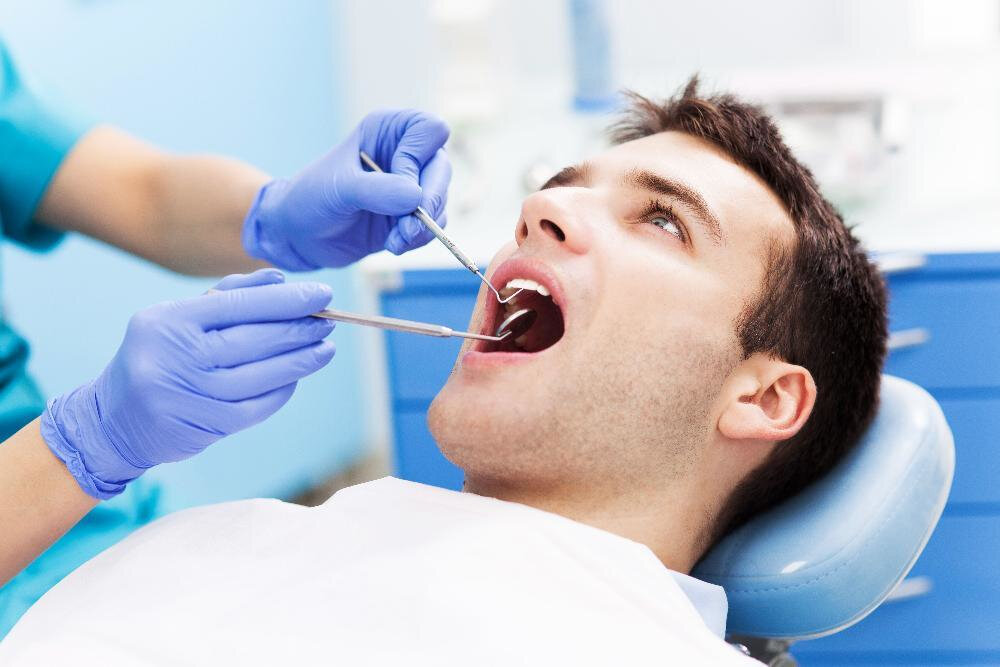
Bottom teeth pain when biting down can be a frustrating and uncomfortable experience. There are several potential causes of this type of pain, and understanding them can help you find the right solution to alleviate your discomfort. One possible cause of bottom teeth pain when biting down is tooth decay. Cavities can lead to sensitivity and pain when biting down, as well as other symptoms like toothaches and bad breath. If you suspect that your bottom teeth pain is related to tooth decay, it’s important to visit your dentist as soon as possible for an evaluation and treatment. Another potential cause of bottom teeth pain when biting down is gum disease. This condition can cause your gums to become inflamed and tender, which can lead to pain when biting down. Other symptoms of gum disease can include bleeding gums, bad breath, and loose teeth. If you suspect that your bottom teeth pain is related to gum disease, it’s important to see your dentist for a thorough evaluation and treatment plan. In some cases, lifestyle changes like quitting smoking or improving your oral hygiene routine can help alleviate your symptoms, while in other cases, more extensive treatment like scaling and root planing may be necessary.
Enamel erosion is a common dental problem that occurs when the hard outer layer of teeth gradually wears away due to exposure to acid. The acid can come from a variety of sources, including acidic foods and drinks, frequent vomiting, and acid reflux. When enamel erodes, the underlying dentin layer becomes exposed, which can cause sensitivity, discoloration, and even tooth decay. Additionally, enamel erosion can make teeth more susceptible to chipping and cracking. It is important to practice good oral hygiene habits, such as brushing and flossing regularly, and to avoid foods and drinks that can erode enamel in order to prevent this painful and potentially damaging condition.
Cracked or chipped teeth can be a painful and frustrating experience that affects both your dental health and your overall well-being. Teeth can become cracked or chipped due to a variety of reasons, such as trauma or decay, and can be a serious concern if left untreated. Symptoms of cracked or chipped teeth may include sensitivity to hot and cold temperatures, pain when biting down or chewing, and even visible cracks or chips in the tooth. In order to prevent further damage or decay, it is important to seek professional dental care as soon as possible. Your dentist may recommend a range of treatments, from dental bonding or fillings to root canal therapy or even a dental crown, depending on the severity of the damage.
Bruxism, also known as teeth grinding, is a condition in which a person clenches or grinds their teeth during sleep or while awake. The condition can be caused by stress, anxiety, or an abnormal bite. Teeth grinding can lead to jaw pain, headaches, and damage to the teeth and gums. Treatment options include wearing a mouthguard at night, practicing stress-reducing techniques, and addressing any underlying dental issues. It is important to address bruxism early on to prevent further damage to the teeth and to alleviate any discomfort or pain.
Gum disease, also known as periodontal disease, is a common condition that affects the gums and supporting tissues of the teeth. It is caused by the buildup of plaque and bacteria on the teeth and gums, which can lead to inflammation, bleeding, and eventually tooth loss. Gum disease can be caused by a variety of factors, including poor oral hygiene, smoking, genetics, and certain medical conditions. Symptoms of gum disease include red, swollen gums, bad breath, and receding gums. Treatment options for gum disease include deep cleaning, medication, and surgery in severe cases. If left untreated, gum disease can lead to serious complications, including tooth loss and systemic health problems.
Malocclusion, commonly known as misaligned teeth, occurs when there is a mismatch between the upper and lower teeth and jaws. This condition can cause discomfort, pain, and difficulty in biting, chewing, and speaking. The causes of malocclusion can vary from genetic factors, childhood habits such as thumb-sucking, and injuries to the jaw. Furthermore, malocclusion can lead to several dental problems, including tooth decay, gum disease, and temporomandibular joint disorders. Fortunately, there are several treatments available to correct malocclusion, including dental braces, clear aligners, and surgery, which can help alleviate the discomfort and improve oral health.
Symptoms and Diagnosis
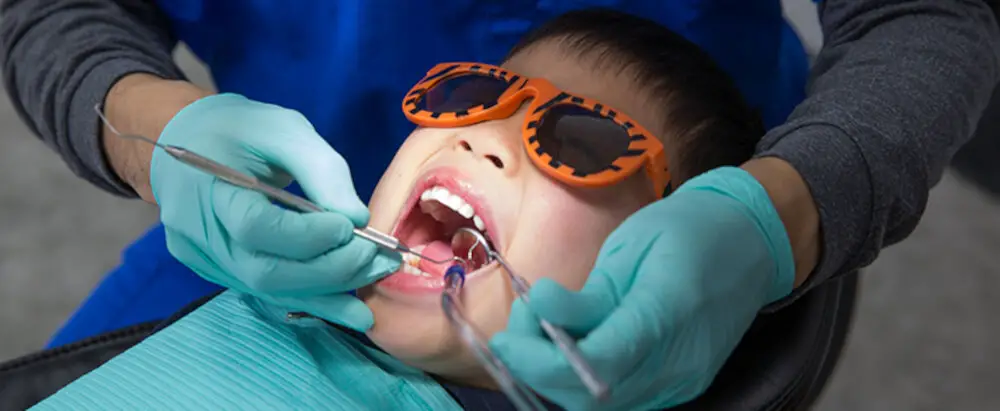
Symptoms of tooth pain and sensitivity can manifest in various ways, depending on the underlying cause. Some people may experience sharp pain when biting down, while others may feel a dull ache or pressure in their teeth. Sensitivity to hot or cold temperatures, as well as sweet or acidic foods, is another common symptom of tooth pain. In some cases, the pain may radiate to other areas of the face, such as the jaw or ear. Other symptoms may include swollen or bleeding gums, a bad taste in the mouth, or difficulty chewing. Diagnosing the cause of tooth pain and sensitivity typically involves a thorough examination by a dental professional. During the exam, the dentist may ask about the nature and duration of the symptoms, as well as any other health conditions or medications that could be contributing factors. They may also use a dental instrument to gently tap or apply pressure to the affected tooth to assess the extent of the pain. X-rays or other imaging tests may be ordered to help identify underlying issues, such as decay or infection. Once a diagnosis has been made, the dentist can develop a customized treatment plan to address the underlying cause of the pain and restore oral health.
Pain or sensitivity in the teeth can be a debilitating experience, affecting one’s ability to eat, drink, and even speak. When biting down causes pain in the lower teeth, it can be due to a variety of factors, such as tooth decay, gum disease, or even an uneven bite. The pressure applied to the teeth during biting can exacerbate these conditions, leading to sharp, shooting pains or a persistent dull ache. However, there are solutions available to alleviate this discomfort, including dental treatments such as fillings or root canals, as well as preventative measures like regular brushing and flossing, and wearing a mouthguard to protect against teeth grinding. By understanding the causes of tooth pain and sensitivity, individuals can take steps to maintain their oral health and enjoy pain-free eating and drinking.
Difficulty chewing is a common problem that can be caused by a variety of factors, including dental issues such as tooth decay, gum disease, or a misaligned bite. This can result in pain or discomfort while eating, which can lead to a decrease in appetite and overall health. Additionally, difficulty chewing may also be a symptom of more serious health conditions such as temporomandibular joint disorder (TMJ), which can cause pain and stiffness in the jaw joint. To alleviate this issue, it is important to consult with a dental professional who can diagnose the underlying cause and provide appropriate treatment options. These may include dental procedures such as fillings, root canals, or braces, as well as lifestyle changes such as avoiding hard or sticky foods and practicing proper oral hygiene.
When it comes to dental exams, X-rays are an essential tool for dentists to diagnose dental issues. X-rays can reveal decay between teeth, bone loss, impacted teeth, abscesses, and other dental problems that may not be visible during a visual exam. Digital X-rays have become more prevalent in recent years, as they emit less radiation than traditional X-rays and provide clearer images. During a dental exam, your dentist may take X-rays of your teeth and jaw to get a comprehensive understanding of your dental health. By detecting dental issues early on, your dentist can create a treatment plan to prevent further damage and preserve your oral health.
Solutions to Bottom Teeth Pain When Biting Down

Bottom teeth pain when biting down can be a frustrating and uncomfortable experience. There are several causes of this type of pain, including tooth decay, gum disease, and damage to the teeth or jaw. Fortunately, there are also several solutions available to help alleviate the pain and discomfort associated with this issue. One solution to bottom teeth pain when biting down is to practice good oral hygiene. This means brushing your teeth at least twice a day and flossing daily to remove plaque and food particles from your teeth and gums. Regular dental check-ups and cleanings can also help prevent and treat tooth decay and gum disease. Additionally, wearing a mouthguard if you grind your teeth can help protect your teeth from further damage and reduce pain when biting down. Other solutions may include using over-the-counter pain relievers, avoiding hard or sticky foods, and seeking professional dental care for more serious issues such as a cracked or broken tooth.
Dental fillings or crowns are a common solution to repair damaged or decayed teeth. Fillings are typically used to fill small cavities caused by tooth decay, while crowns are used to cover and protect a tooth that has been severely damaged or weakened. Both can help alleviate pain caused by biting down on the affected tooth. Fillings can be made of various materials, including composite resin, porcelain, and silver amalgam. Crowns are typically made of porcelain, ceramic, or metal alloys. Your dentist will determine which option is best for you based on the location and severity of the damage. It’s essential to address any dental issues promptly to prevent further damage and discomfort.
Root canal therapy is a dental treatment that involves the removal of infected or damaged tissue from the root canal of a tooth. This procedure is usually recommended when the nerve tissue inside the tooth becomes inflamed or infected due to decay, injury or trauma. Root canal therapy is performed by a dentist or endodontist under local anesthesia to numb the area around the tooth. The procedure involves making a small hole in the tooth to access the root canal, removing the infected tissue, and then cleaning and sealing the canal. After the procedure, a crown or filling is placed on the tooth to restore its shape and function. Although root canal therapy may sound intimidating, it is a highly effective treatment that can save a damaged or infected tooth from extraction.
Orthodontic treatment is a specialized field of dentistry that involves the use of braces or other dental appliances to correct misaligned teeth and jaws. This type of treatment can help alleviate pain and discomfort caused by overbite, underbite, crowding or spacing issues. Orthodontics can also improve the appearance of a person’s smile by straightening teeth and aligning the jaws properly. Treatment typically involves regular visits to the orthodontist for adjustments and monitoring progress. In some cases, surgery may be necessary to correct severe orthodontic issues. Overall, orthodontic treatment is a valuable solution for individuals experiencing pain and discomfort in their teeth and jaws.
Bruxism, the habit of grinding or clenching your teeth, can cause significant damage to your teeth, gums, and jaw. One of the most effective ways to protect your teeth from the effects of bruxism is to use a custom mouthguard. Unlike over-the-counter mouthguards, custom-fitted mouthguards are designed specifically to fit your teeth, providing a comfortable and secure fit. They can help reduce the impact of grinding and clenching, protecting your teeth from damage and relieving the pain and discomfort associated with bruxism. With a custom mouthguard, you can continue to enjoy your favorite foods and activities without worrying about the impact of bruxism on your oral health.
Proper oral hygiene and diet play a vital role in maintaining healthy teeth and gums. Brushing your teeth twice a day with fluoride toothpaste and flossing daily helps to remove plaque and prevent gum disease. In addition to this, it is important to maintain a balanced diet that is rich in calcium, vitamin D, and other essential nutrients that help to strengthen teeth and bones. Avoiding sugary and acidic foods and drinks, such as soda and candy, can also help to reduce the risk of tooth decay and erosion. By practicing good oral hygiene habits and eating a healthy diet, you can protect your teeth and prevent painful problems such as tooth sensitivity.
Prevention of Bottom Teeth Pain When Biting Down
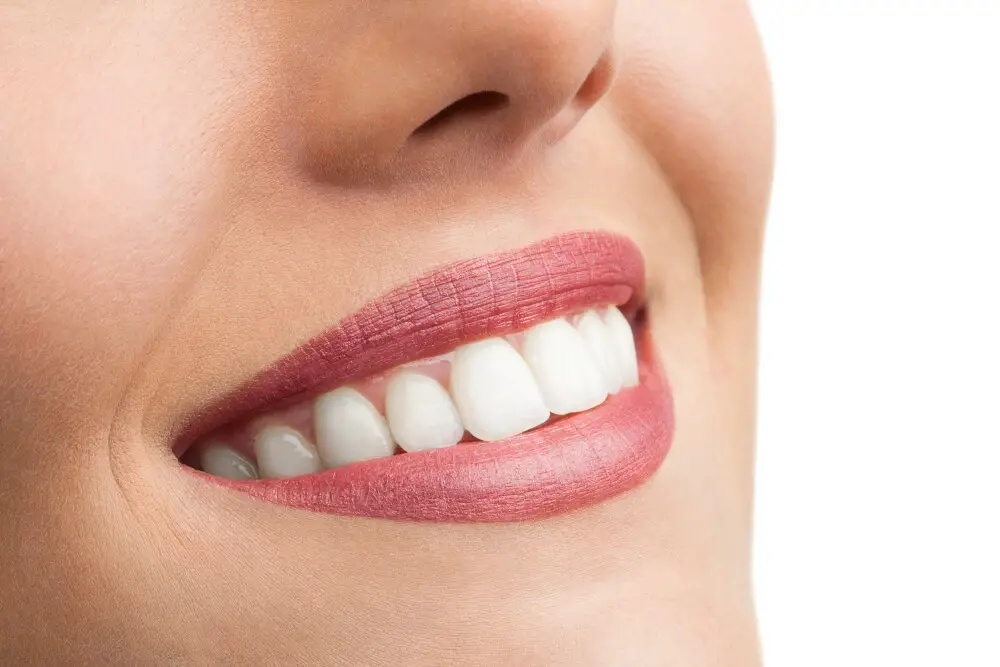
Bottom teeth pain when biting down can be a frustrating and uncomfortable experience. Fortunately, there are several steps you can take to prevent this type of pain and keep your teeth healthy and pain-free. One of the most important things you can do is practice good oral hygiene. Brushing your teeth twice a day and flossing regularly can help prevent tooth decay and gum disease, which are two common causes of bottom teeth pain. Additionally, you should visit your dentist for regular cleanings and check-ups to catch any potential problems early on. Another way to prevent bottom teeth pain when biting down is to avoid certain foods and drinks that can damage your teeth. Sugary and acidic foods can erode your tooth enamel, making your teeth more vulnerable to pain and sensitivity. Instead, try to eat a balanced diet that includes plenty of fruits, vegetables, and whole grains. You should also limit your intake of sugary drinks, like soda and sports drinks, and opt for water or milk instead. By taking a few simple steps to care for your teeth and avoid harmful foods and drinks, you can keep your bottom teeth healthy and pain-free for years to come.
Regular dental checkups are essential for maintaining good oral health and preventing various dental problems. These checkups allow the dentist to detect any issues early on and take necessary action to prevent them from becoming worse. During these checkups, the dentist will examine your teeth, gums, and mouth for any signs of tooth decay, gum disease, or other oral health issues. They will also clean your teeth and remove any tartar or plaque buildup that may have accumulated since your last visit. Regular dental checkups not only keep your teeth and gums healthy but can also prevent painful conditions like toothaches and sensitivity, allowing you to enjoy your favorite foods without discomfort.
Wearing protective mouthguards is an essential preventive measure to safeguard your teeth from dental injuries and trauma caused by impact. It is especially crucial for athletes who engage in high-impact sports such as football, hockey, and boxing. Mouthguards act as a cushion between your teeth and the surrounding structures, absorbing the force of the impact and reducing the risk of dental fractures, chips, and dislodgement. Additionally, mouthguards can also protect your tongue, lips, and cheeks from lacerations and bruises. Investing in a well-fitted mouthguard can save you from a lot of pain, discomfort, and dental expenses in the long run.
Maintaining proper oral hygiene and a healthy diet is crucial for preserving the health of your teeth, including your bottom teeth. Brushing twice a day and flossing daily can help remove plaque and food particles that can lead to tooth decay and gum disease. Additionally, limiting sugary and acidic foods and drinks can also help prevent damage to your teeth. Instead, opt for nutrient-rich foods like fruits, vegetables, and dairy products. By prioritizing oral hygiene and a balanced diet, you can protect your bottom teeth from the discomfort and pain caused by various dental issues.
Avoiding hard or sticky foods is crucial to maintaining healthy teeth, especially the bottom ones. Hard foods such as nuts, ice, and hard candy can cause damage to the enamel and even crack teeth, leading to sensitivity and pain. Sticky foods like caramel or taffy can get stuck to the teeth and cause pressure on the bottom teeth, leading to discomfort. It’s important to be mindful of the foods you consume and opt for softer options like cooked vegetables or soft fruits to protect your teeth. Additionally, chewing with your back teeth instead of your front teeth can help alleviate pressure on the bottom teeth and reduce discomfort.
Bottom teeth pain when biting down can be caused by various factors, including tooth decay, gum disease, cracked teeth, or misaligned bites. Tooth decay occurs when bacteria in the mouth produce acid that erodes the enamel, leading to cavities. Gum disease can cause inflammation and recession of the gums, exposing the roots of the teeth and making them more sensitive. Cracked teeth can result from trauma or biting down on hard objects, causing pain and sensitivity. Misaligned bites can also cause pain when biting down, as the pressure is not distributed evenly on the teeth. Solutions to these issues may include fillings, root canals, gum treatments, or orthodontic treatments such as braces or aligners. It is important to see a dentist to determine the underlying cause of your bottom teeth pain and to receive appropriate treatment to prevent further damage and alleviate discomfort.
It is crucial to seek professional dental care for proper diagnosis and treatment of any dental problems. When it comes to issues such as pain when biting down on your bottom teeth, there can be various underlying causes that only a dental professional can accurately identify. Apart from diagnosing the root cause of your dental issues, a dentist can also recommend the best treatment options that are tailored to your specific needs. This can range from simple measures such as changing your toothbrush or oral hygiene habits to more complex procedures such as root canal therapy or tooth extraction. Seeking professional dental care not only helps alleviate your current dental discomfort but also helps prevent future dental problems.
Conclusion
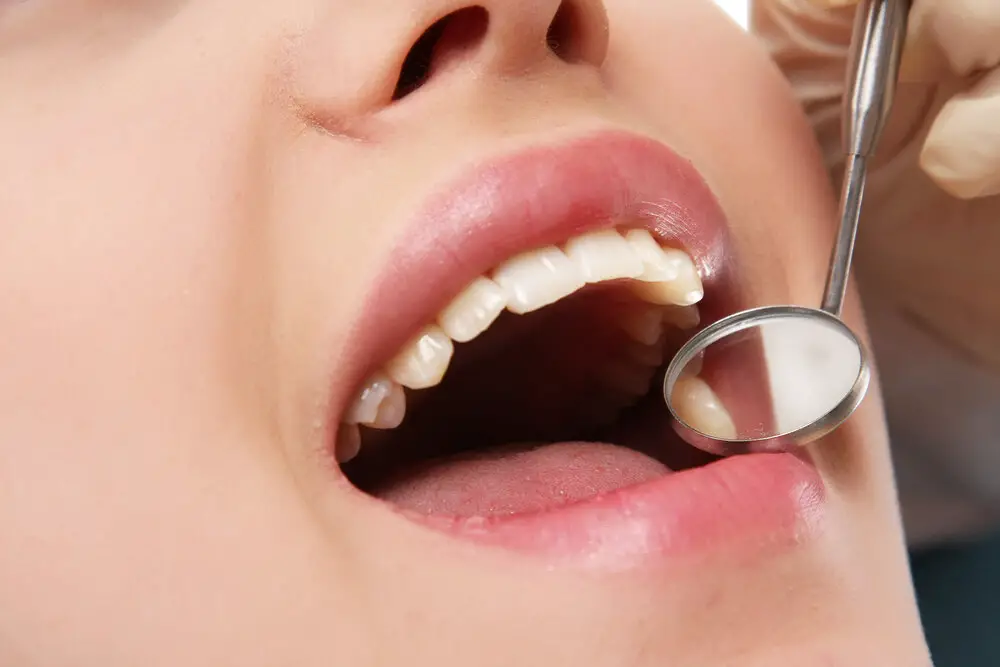
In conclusion, biting down and experiencing pain in your bottom teeth can be a frustrating and uncomfortable experience. However, understanding the causes and solutions can alleviate the problem. Whether it’s due to tooth decay, gum disease, or misaligned teeth, seeking professional dental care is crucial to addressing the issue. Additionally, practicing good oral hygiene habits and being mindful of what you eat can also prevent further damage and discomfort. Ultimately, taking proactive steps to maintain your dental health can lead to a pain-free and confident smile.




